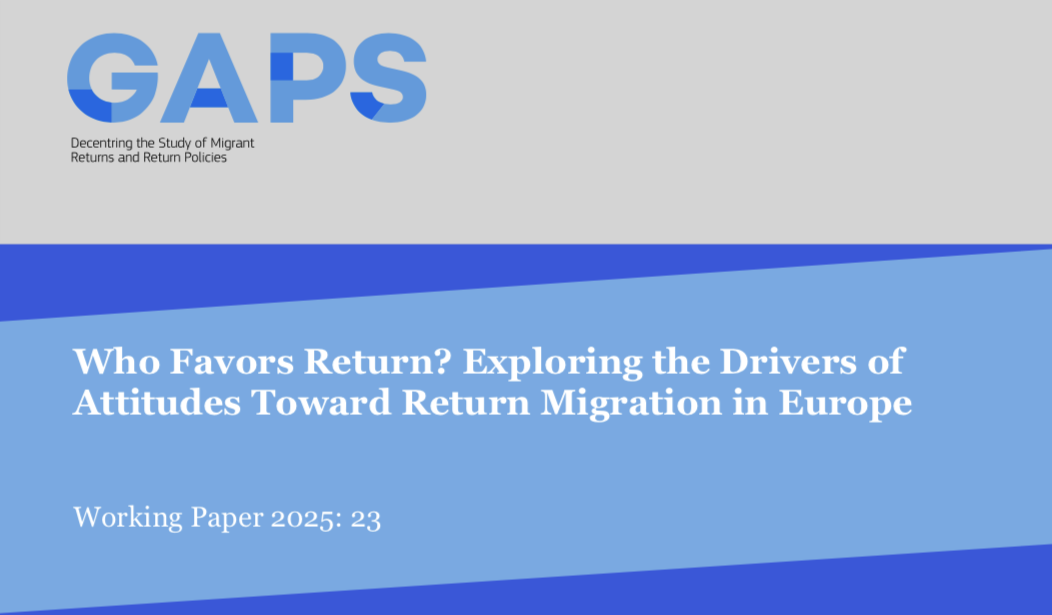Who Favors Return? Exploring the Drivers of Attitudes Toward Return Migration in Europe
Executive Summary:
Public attitudes toward return of migration are increasingly relevant to European policy debates, especially as governments prioritise enforcement of return orders issued to ‘unauthorised’ ‘irregular’ migrants. This paper examines the social and contextual determinants of public attitudes toward such returns in five EU member states: Germany, Greece, the Netherlands, Poland, and Sweden. Drawing on original survey data, we explore how individual-level characteristics such as age, gender, education, income, political orientation, migration background, personal contact with migrants, and trust influence support for return migration. Our results show more restrictive attitudes found among respondents who are wealthier, politically right-leaning, or hold lower educational attainment. They highlight the significance of trust, personal contact with migrants, and political ideology as key predictors. Our findings also show that while national contexts matter, many attitudinal trends are consistent across borders.
This paper contributes to a limited but growing body of research on the public legitimacy of return policies, offering insights that can inform both public discourse and policy design. A key contribution of our study lies in its disaggregation of the attitudes toward return into four distinct dimensions: namely general support for return and return based on economic, cultural and security concerns. This approach allows us to move beyond the surface-level attitudes often discussed in public and political discourse and delve more into the complex nature of public opinion towards return. While certain predictors, such as political ideology, anti-migrant attitudes and trust did have consistent effects across all dimensions, others varied drastically. For instance, economic concerns prevailed more among middle-aged respondents, cultural concerns were reflected among older cohorts, and higher-income individuals were the most expressive of security concerns. These findings prove that public attitudes towards return are not uniform and indeed not one-dimensional. They are shaped by different fears and threat perceptions among people. Upon understanding the specific drivers, targeted policy interventions as well as communication strategies can be used to reduce public concern and promote better evidence-based discourses about migrants and coerced returns.
Please find the entire DOI report by clicking the button below:

